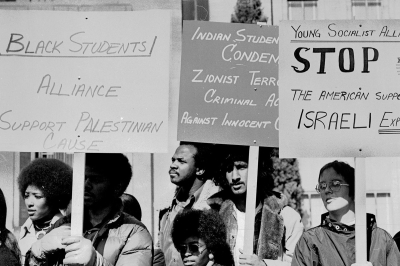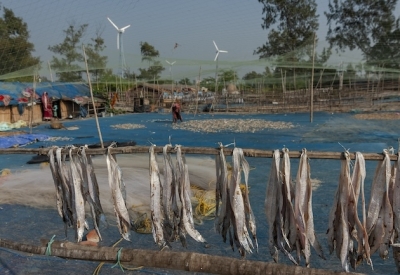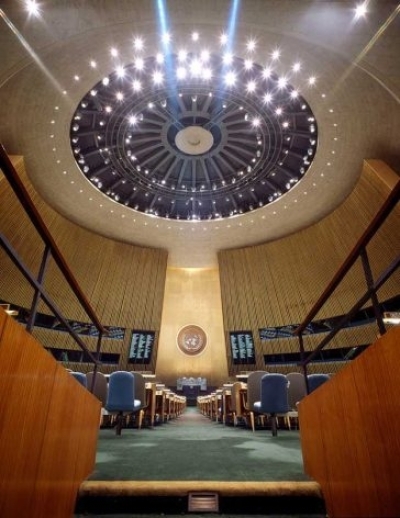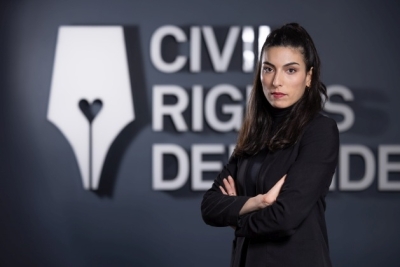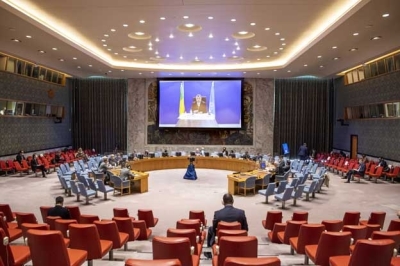JOHANNESBURG, Jan 12 (IPS) — Israel disputed both South Africa’s jurisdiction and the provisional measures that it demanded the International Court of Justice impose on the State of Israel to prevent genocide.
Israel’s co-agent, Tal Becker, said in his opening address that Jewish people’s experience of the Holocaust meant that it was among “among the first states to ratify the Genocide Convention, without reservation, and to incorporate its provisions in its domestic legislation. For some, the promise of ‘never again for all people’ is a slogan. For Israel, it is the highest moral obligation.”
He then accused the South African government of bringing a fundamentally flawed case, which would in effect deny the country’s right to defend itself.
“The applicant has now sought to invoke this term (genocide) in the context of Israel’s conduct in a war it did not start and did not want. A war in which Israel is defending itself against Hamas, Palestinian Islamic Jihad, and other terrorist organizations whose brutality knows no bounds.”
Giving details of the Hamas attack on Israel on October 7, 2023, which he said was “the largest calculated mass murder of Jews in a single day since the Holocaust,” he accused South Africa of trying to “weaponize the term genocide against Israel," delegitimizing the country and its right to defend itself.
“What proceeded under the cover of thousands of rockets fired indiscriminately into Israel? Was the wholesale massacre, mutilation, rape, and abduction of as many citizens as the terrorists could find before Israel’s forces repelled them openly, displaying elation. They tortured children in front of parents and parents in front of children. Burned people, including infants alive, systematically raped and mutilated scores of women, men, and children. All told, some 1200 people were butchered that day, more than 5500 names, and some 240 hostages abducted, including infants, entire families, persons with disabilities, and Holocaust survivors, some of whom have since been executed, many of whom have been tortured, sexually abused, and stabbed in captivity.”
Becker said the applicant is essentially asking the court to substitute the “lens of armed conflict between a state and a lawless terrorist organization with the lens of a so-called genocide of a state against a civilian population" and that Israel’s action against Hamas was legitimate defense of the country.
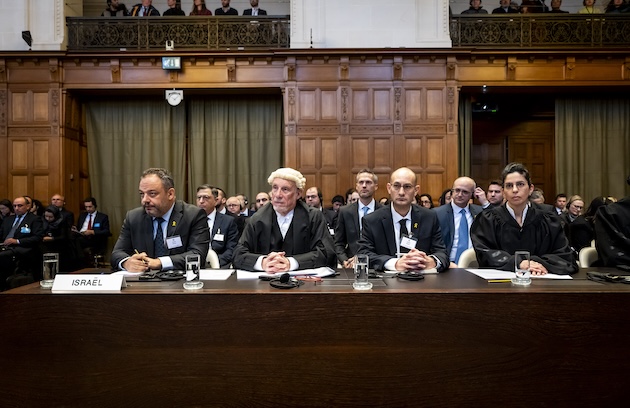
Professor Malcolm Shaw argued that the applicants right to approach the court was premature as there was no dispute between the countries.
He argued that Israel had responded to the applicant on December 27, 2023, "in good faith," and had attempted to hand deliver notes, but the South African Department of International Relations rejected them because it was a public holiday and instructed them to try again on January 2, 2024.
However, before the notes could be delivered, South Africa launched the court application on December 29, 2023.
Shaw also said statements relied on by South Africa to show intent to commit genocide were not grounded in the policy frameworks of Israel.
He argued that the Prime Minister, during ministerial committees, issued directives “time and again” on methods to prevent a humanitarian disaster, which included looking at solutions to ensure a supply of water, food, and medicine and the construction of field hospitals.
“The remarks or actions of a soldier do not and cannot reflect policy,” Shaw told the court, saying it’s response included statements from, for example, the Minister of Defense on October 29, which made it clear that the country was fighting Hamas and not the people of Gaza, and from the President declaring that the country was operating militarily according to international law.
These decisions show that Israel lacked “genocidal intent” and said its actions were contrary to the South African argument inherent in the rights of any state to defend itself, which is “embedded in customary international law and enshrined in the UN Charter.”
Galit Raguan, Director of the International Justice Division, Ministry of Justice of the State of Israel, told the court that it was “astounding that in yesterday’s hearing, Hamas was mentioned only in passing and only in reference to the October 7 massacre in Israel. Listening to the presentation by the applicant, it was as if Israel were operating in Gaza against no armed adversary. But the same Hamas that carried out the October 7 attacks in Israel is the governing authority in Gaza. And the same Hamas has built a military strategy founded on embedding its assets and operatives among the civilian population.”
She said urban warfare will always result in tragic deaths, harm, and damage.
Using the example of the blast at al-Ahli Arab Hospital, which was blamed on the Israeli Defense Force (IDF), it was in fact independently confirmed as the result of a failed launch from within Gaza.
"South Africa does not consider the sheer extent to which Hamas uses ostensibly civilian structures for military purposes. Houses, schools, mosques, facilities, and shelters are all abused for military purposes by Hamas, including as rocket launching sites. Hundreds of kilometers of tunnels dug by Hamas under populated areas in Gaza often cause structures above to collapse,” she told the court.
Raguan also disputed South Africa’s version of Israel’s efforts to mitigate civilian harm.
"Here, the applicant tells not just a partial story but a false one. For example, the application presents Israel’s call to civilians to evacuate areas of intensive hostilities ‘as an act calculated to bring about its physical destruction.’ This is a particularly egregious allegation that is completely disconnected from the governing legal framework of international humanitarian law."
Instead of 24 hours, as South Africa alleges, “the IDF urged civilians to evacuate to southern Gaza for over three weeks before it started its ground operation. Three weeks that provided Hamas with advanced knowledge of where and when the IDF would be operating.”
Raguan asked the court: “Would Israel work continuously with international organizations and states, even reaching out to them on its own initiative, to find solutions to these challenges if it were seeking to destroy the population? Israel’s efforts to mitigate the ravages of this war on civilians are the very opposite of the intent to destroy them.”
Dr Omri Sender elaborated on the humanitarian efforts, saying that more aid was reaching Gaza than before the war.
“The accurate average number for trucks specifically carrying food is 70 trucks a day before the war and 109 trucks a day over the last two weeks... Access to water has also been a priority. As with food supplies, there is no restriction on the amount of water that may enter Gaza. Israel continues to supply its own water to Gaza through two pipelines.”
Christopher Staker, a British barrister representing Israel, questioned whether “provisional measures require a state to refrain from exercising a plausible right to defend itself."
The court, he argued, needed to take into account that Hamas was considered a terrorist organization by Israel and other countries, and secondly, it committed a large-scale terrorist attack on Israeli territory, so the country had a right to defend itself. The country was also taking steps to alleviate the humanitarian situation.
Staker also argued that the provisional measures would not constrain Hamas.
"This would deprive Israel of the ability to contend with this security threat against it. More rockets could be fired into its territory, more of its citizens could be taken hostage, raped, and tortured, and further atrocities could be conducted from across the Gaza border.”
The court’s president, Judge Joan Donoghue, closed proceedings and said the decision of the court would be communicated as soon as possible.
IPS UN Bureau Report


